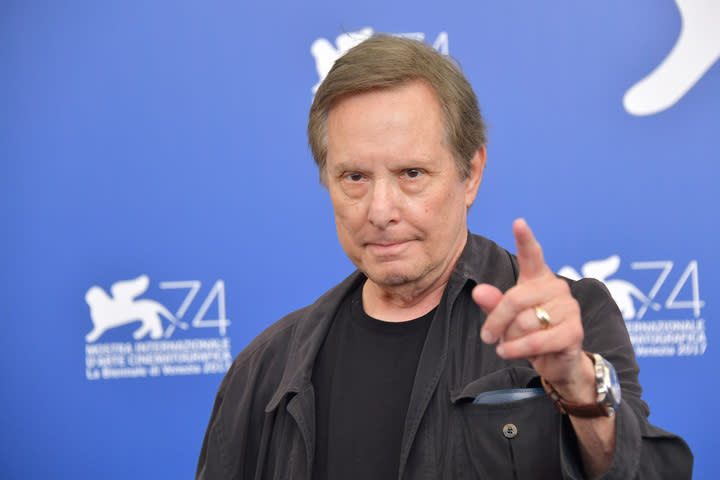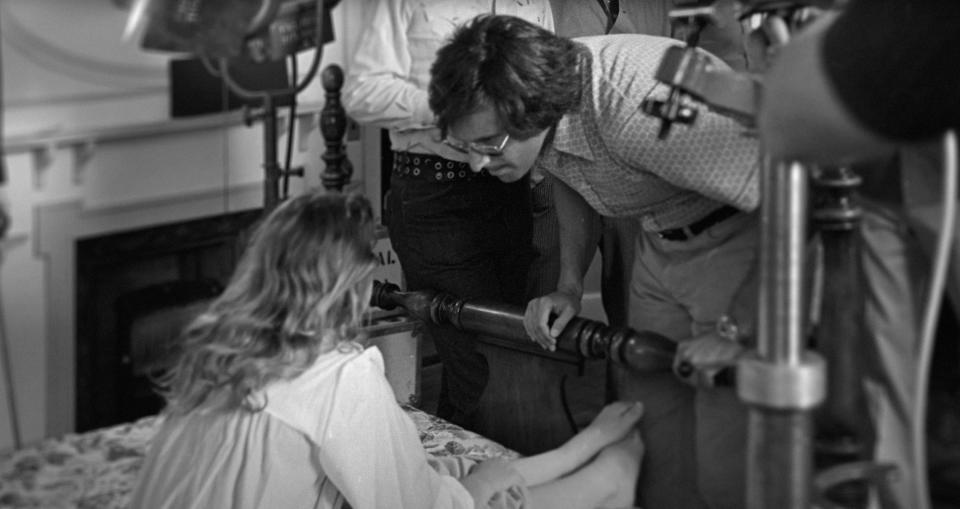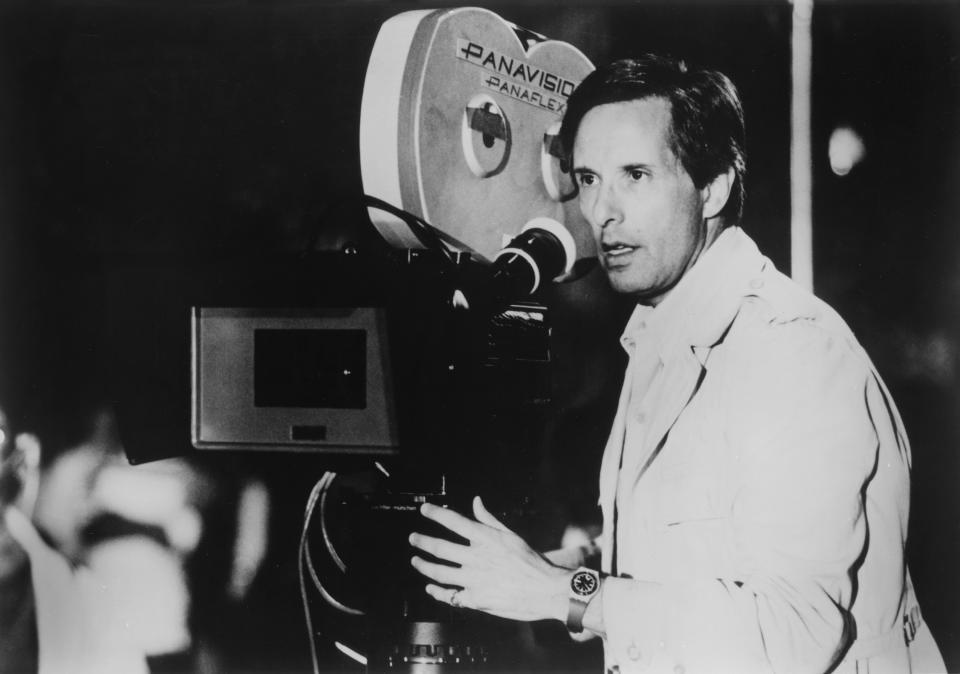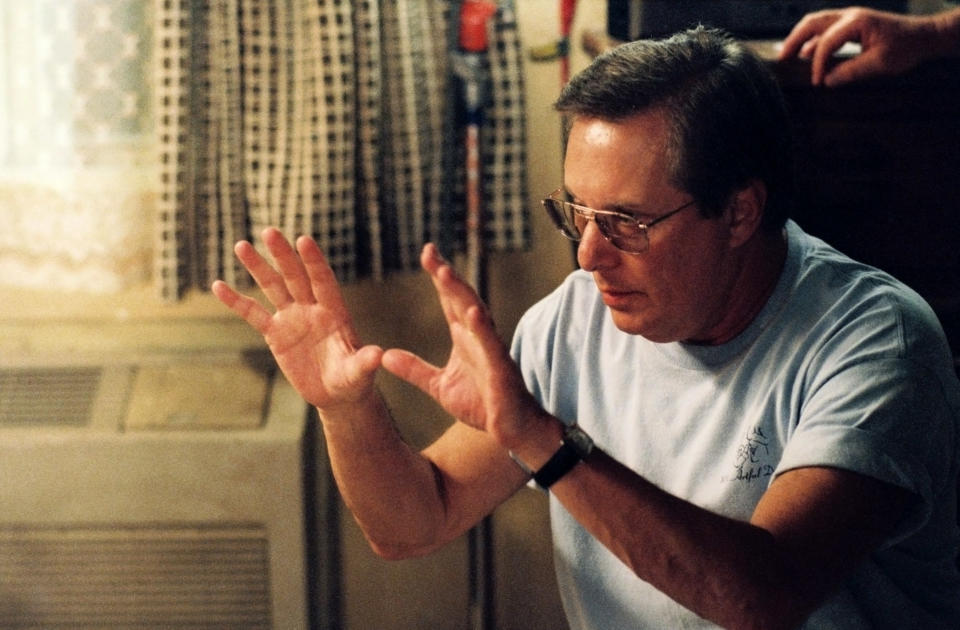William Friedkin, New Hollywood Maverick and ‘Exorcist’ Director, Dead at 87

- Oops!Something went wrong.Please try again later.
- Oops!Something went wrong.Please try again later.
- Oops!Something went wrong.Please try again later.
- Oops!Something went wrong.Please try again later.
William Friedkin, the Oscar-winning director of “The French Connection” and legend behind “The Exorcist,” has died at age 87. His death in Los Angeles was first reported by Variety, and the news was confirmed by Chapman University dean Stephen Galloway, a friend of Friedkin’s wife, former studio head Sherry Lansing.
Friedkin’s sensational 1971 “The French Connection” earned five Academy Awards, including Best Director and Best Picture. Friedkin’s 1973 “The Exorcist” changed the game for horror, earning Best Picture and Director nominations.
More from IndieWire
Friedkin is regarded as a maverick of the New Hollywood school of filmmakers alongside the likes of Peter Bogdanovich and Francis Ford Coppola. His other features include his breakout “The Birthday Party,” “The Boys in the Band,” “Sorcerer,” “Cruising,” “To Live and Die in L.A,” “Bug,” and most recently “Killer Joe” — all films that garnered controversy in one way or another.
Friedkin’s latest film, “The Caine Mutiny Court-Martial,” is set to debut at the 2023 Venice Film Festival, where Friedkin was expected to make an experience. Friedkin adapted the film from a play by Herman Wouk.
Friedkin was born in Chicago to Ukrainian Jewish immigrants. While he did excel in high school, he started going to the movies at a young age, where he immediately began his cinematic education. He loved Orson Welles, Henri-Georges Clouzot, and Alfred Hitchcock — three directors you could say, in retrospect, shaped the way his career married form-pushing technique, European arthouse style, and a mastery of genre.

Friedkin worked in documentary and television shortly after school — his break eventually came directing a late-series episode of “Alfred Hitchcock Presents” before moving to Hollywood and making his debut feature “Good Times.” The musical comedy with Sonny and Cher is one Friedkin had mostly disowned in the time since. He followed this up with the neo-noir-inspired Harold Pinter adaptation “The Birthday Party,” then the screen musical “The Night They Raided Minsky’s” before taking on a risky project that foretold the kinds of provocations — potentially career-killing for their time — with “The Boys in the Band.” The claustrophobic, tense, and touching adaptation of Mart Crowley’s Off-Broadway play centered on an ensemble of gay characters, all alienated friends gathering on the Upper East Side for a night of revelry that turns bitter as old wounds resurface.
But Friedkin’s cinema-vérité-inspired “The French Connection,” owing much to his early work in documentaries due to its fast and loose style, put the director firmly on the map as a New Hollywood visionary. Gene Hackman’s performance as Detective Popeye Doyle remains one of the most iconic characters of the glorious and gritty 1970s American cinema, with the movie deconstructing the cop genre with its moral uneasiness and vision of a corrupt New York City police force.
Two years later, Friedkin shocked the world with his horrifying William Peter Blatty adaptation “The Exorcist,” about the demonic possession of Linda Blair’s Regan MacNeil and the Catholic priests who try to save her. It not only became the first bona fide horror movie to earn a Best Picture nomination, but the film has also grossed $500 million worldwide since opening in 1973 and reviving itself across numerous re-releases. The box office juggernaut remains chilling for Friedkin’s realistic approach to the material, encompassing the horror on human terms through the eyes of Ellen Burstyn’s Chris MacNeil.

Many of Friedkin’s films that followed were succès d’estime that never quite matched the cultural impact of “The Exorcist.” His 1977 “Sorcerer,” a cargo transportation thriller inspired by Clouzot’s “The Wages of Fear,” went so over budget that both Universal and Paramount had to go in on distribution together. Since then, it’s become a cult classic despite flopping at the time.
Friedkin next directed the Boston robbery comedy “The Brink’s Job” with Peter Falk and Gena Rowlands before eventually going on to direct his most controversial movie outside “The Exorcist,” 1981’s “Cruising.” Derided by the LGBTQ community at the time for its depiction of a criminal side of gay life, “Cruising” starred Al Pacino as an undercover NYPD cop who infiltrates the underground leather bar scene of New York to track down a queer serial killer. The film was a box office success and remains, even now, ahead of its time for its explicit gay sex scenes (notably brief flashes to actual anal intercourse and fisting).
Aside from ’80s films that followed like “To Live and Die in L.A.” and “Rampage” and ’90s misses like horror return “The Guardian,” sports drama “Blue Chips,” and psychosexual noir “Jade,” Friedkin turned to television gigs for the next stretch of his career. He directed episodes of “Tales from the Crypt,” “The Twilight Zone,” “Space Quest,” and “C.A.T. Squad” through the early 1990s as well as a TV remake of “Twelve Angry Men” in 1997.

His aughts career saw military thrillers “Rules of Engagement” and “The Hunted” make modest impact, but he had something of a one-two-punch comeback with two Tracy Letts adaptations: 2006’s single-location thriller “Bug” with Ashley Judd and Michael Shannon and 2011’s NC-17 southern-fried gothic “Killer Joe” with Matthew McConaughey and Gina Gershon.
Per IndieWire communications with the film’s rep, Friedkin intended to accompany the world premiere of “The Caine Mutiny Court-Martial” in Venice to do press interviews. This marks his final film.
Friedkin had a string of iconic marriages throughout his career, including to French New Wave actress Jeanne Moreau, model Lesly-Anne Down, journalist Kelly Lange, and his fourth wife Sherry Lansing. He is survived by Lansing and their two sons.
Best of IndieWire
Sign up for Indiewire's Newsletter. For the latest news, follow us on Facebook, Twitter, and Instagram.

